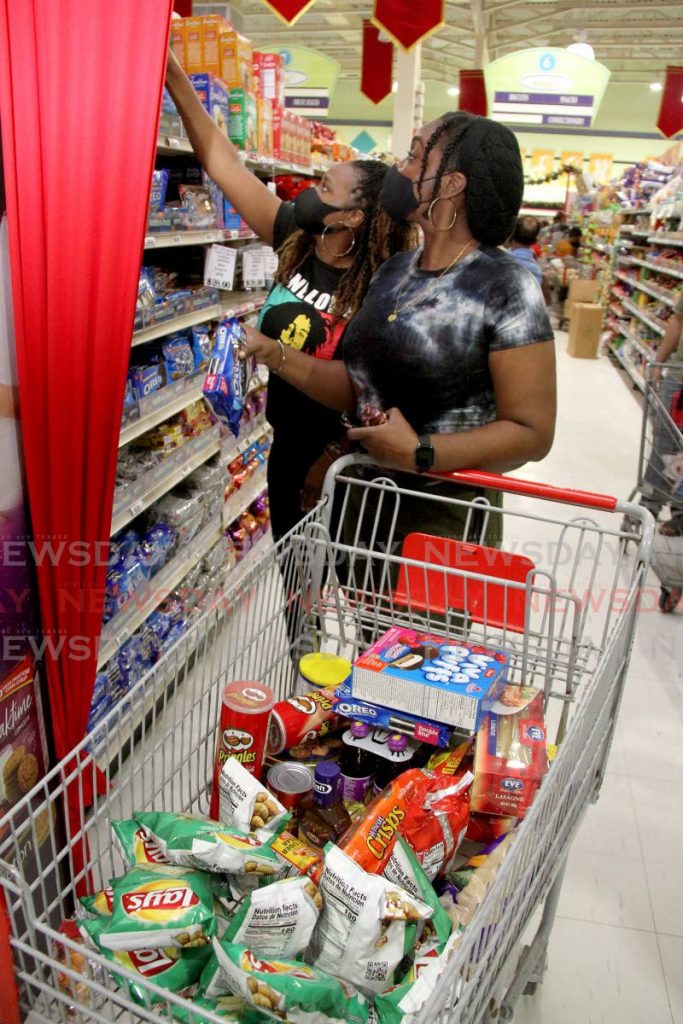Food prices increase, credit uptake slows as covid19 policies fail to hit mark

Domestic liquidity remains at record highs, the Central Bank said Wednesday, and interest rates have continued to decline since policies were introduced in March to mitigate the economic fallout of the covid19 pandemic and stimulate activity.
But it appears consumers are either unable or unwilling to access these facilities as the bank’s quarterly monetary policy announcement noted that credit response has been sluggish.
As its monetary policy actions continue to make their way through the financial system, the bank said, credit growth in September measured 0.6 per cent, with business credit contracting by 4.6 per cent in September, slower than the 6.1 per cent decline three months earlier.
In March, the bank made sweeping adjustments to its policies, slashing the repo rate (the rate at which it lends to commercial banks) to 3.5 per cent and raising the reserve requirement (the amount of money banks need to keep on hold to meet demand) from 11 per cent to 14 per cent, thereby infusing some $2.6 billion into the economy, theoretically making it easier for cash-strapped businesses to access liquidity.
The economy remained subdued in the third quarter of 2020, the bank said, although there were signs of resurgence in construction – notably public works and home repairs – as well as manufacturing, most likely as economic activity in these sectors rebounded from an eight-week lockdown that ended in the last week of May.
As the year comes to a close, the bank noted, there are also indications that a number of financial institutions and other private businesses are successfully adapting their processes to streamline operations and boost sales, notwithstanding the shadows cast by the pandemic. Headline inflation (including food and other volatile commodities) remained contained, measuring 0.9 per cent in the 12 months to November 2020. However, there has been a notable uptick in food inflation to 5.1 per cent in November, compared with 2.1 per cent in August, possibly related to covid19 disruptions in supply from domestic and imported sources.
In June 2018, the bank had raised the repo rate to 5.0 per cent from 4.75 per cent in an effort to stymie increasing interest rate differentials (the rate of return on US vs TT investments, usually three-month Treasury bonds), before slashing it this March. However, it noted this year that “the tapering of domestic interest rates has contributed to a substantial narrowing of domestic/foreign interest differentials,” and the TT-US yield differential on three-month treasuries moved from 85 to six basis points between August and November.
Globally, economic conditions improved somewhat during the second half of the year, “on account of extraordinary policy actions on the monetary and fiscal front in response to the covid19 pandemic” by governments and central banks around the world. The International Monetary Fund updated its 2020 global growth projection to -4.4 per cent, compared to its mid-year estimate of -4.9 per cent.
Economic resuscitation is yet to hit the shores of the Caribbean, though, the bank said, with tourism-dependent economies in particular continuing to record double-digit declines in output.
Burgeoning optimism over a durable global rebound in 2021 after the development, approval and deployment of covid19 vaccines, however, is being tempered by the emergence of new strains of the virus in Europe and parts of Africa.
But the bank said, “The monetary policy committee evaluated domestic developments and the fluid international conditions. The deep declines experienced by the energy sector in 2020 are not expected to persist at the same pace in 2021 and the non-energy sector appears to be in an early phase of correction.
"At the same time, the committee acknowledged the large degree of uncertainty characterising the outlook for the year ahead, and the ongoing need for monetary policy to be poised to react quickly to evolving circumstances in close co-ordination with fiscal and structural policies.
“Taking all factors into consideration, the MPC agreed to maintain the repo rate at 3.50 per cent. The bank continues to monitor and analyse international and domestic developments, and will take further actions as necessary.”
The next monetary policy announcement is scheduled for March 26, 2021.

Comments
"Food prices increase, credit uptake slows as covid19 policies fail to hit mark"